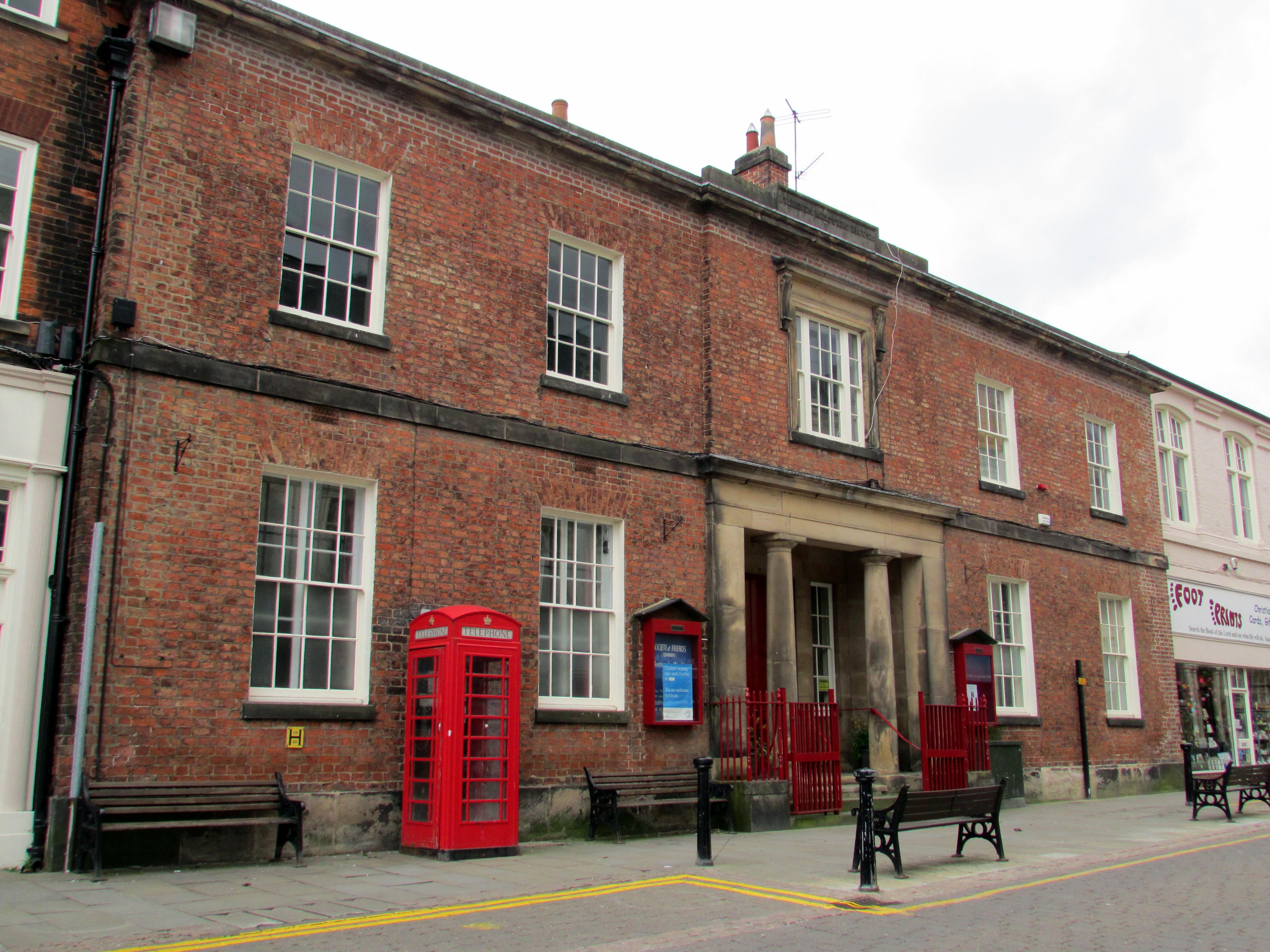St Cuthbert
Darlington, County Durham
A haven of peace and beauty in a busy town centre.

Although The Religious Society of Friends (Quakers) built a Meeting House in Darlington in 1678 (when they bought the plot for ’35), the present structure was not completed until about 1846.
Darlington, County Durham
It comprised two large chambers, one for men and one for women, separated by large sliding shutters that were raised into the roof space by a winding mechanism that still survives. Elegant wooden steps lead up to a gated minister's stand, with a sounding board over the stand added later. Great north and south windows under brick arches have delicate glazing bars and margin lights, and the Skinnergate front boasts a rather grand single storey stone porch with Doric columns.
Quakers played a large role in establishing Darlington as a major industrial force from the 18th century onwards. Edward Pease, a devout local Quaker known as the Father of the Railways, is buried under a simply inscribed headstone in the high walled burial ground behind the Meeting House, which contains trees planted by him.
Darlington, County Durham
A haven of peace and beauty in a busy town centre.
Darlington, County Durham
Haughton le Skerne, Northumberland
Beautiful Grade I listed church circa 1125 with Norman features.